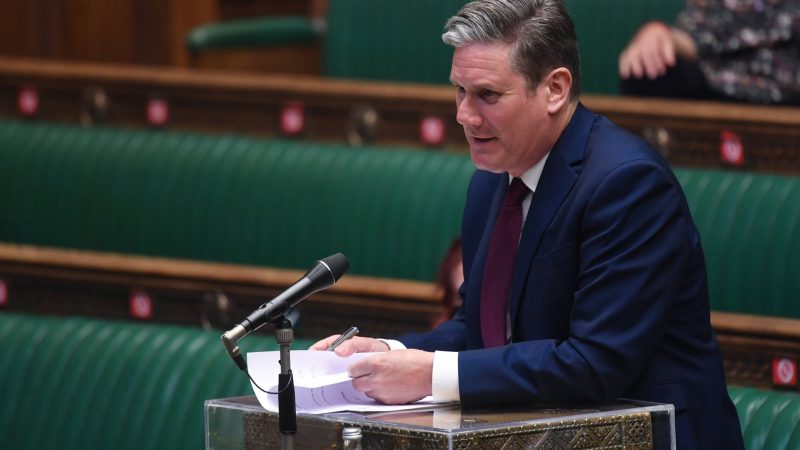
Today marks six years since the Westminster terror attack which claimed the lives of five people, including police officer Keith Palmer. Both Rishi Sunak and Keir Starmer began today’s Prime Minister’s Questions by paying tribute to Palmer and the others who lost their lives. The Labour leader commended the brave police officers around the country like Palmer who risk their lives in the service of others but argued that “those brave officers are being let down” by the conditions of “institutional homophobia, misogyny and racism” detailed in Baroness Louise Casey’s report into the Metropolitan police.
The Prime Minister said he had been “appalled” while reading Casey’s report, adding that it is “imperative that the Met works hard to regain trust”. Starmer called on the government to adopt Labour’s proposals for police vetting reform, telling MPs that the reforms would “end the farce that sees different police recruitment standards in different forces”. Sunak said the Conservatives were “already taking action to tackle the issues raised in the Casey report” and countered claims of government failure in this area by stressing that “primary public accountability” for the Met lies with London mayor Sadiq Khan. The Met commissioner is jointly responsible to the Home Secretary and the London mayor.
Starmer argued that the government’s approach was tantamount to “sheer negligence” before describing some of the failures that Casey documented in prosecuting rapists, including the use of faulty or overfull fridges to store rape kits. Starmer decried the low prosecution rate for burglary and even lower rate for rape, arguing that the government is allowing “burglars and rapists [to] walk the streets with impunity” and that it should be “ashamed” of its record.
Starmer was on steady ground today, as he was at yesterday’s press conference on the Casey report. The Labour leader’s former career as director of public prosecutions stands him in good stead to talk with an earned authority on reform to the criminal justice system and the need for “root and branch” change. Starmer talks on this subject with an assurance that can be lacking from his PMQs performances (his poor appearance quizzing Sunak on the Lineker affair last week being a case in point), and when the Labour leader is good, he lands considered, concise blows against his opponent. If Starmer’s default tone is solemn, verging on grave, Sunak’s is that of the glib head boy he likely was 25 years ago, and when the matter at hand is misconduct, systemic abuse and discrimination within the police force, it is far better to come across as grave than glib.




More from LabourList
Restoration announce recommendations for NEC candidates
‘Factionalism at the top is weakening Labour – and handing a gift to Reform’
‘Europe must stand strong on its own as US security guarantees grow conditional’